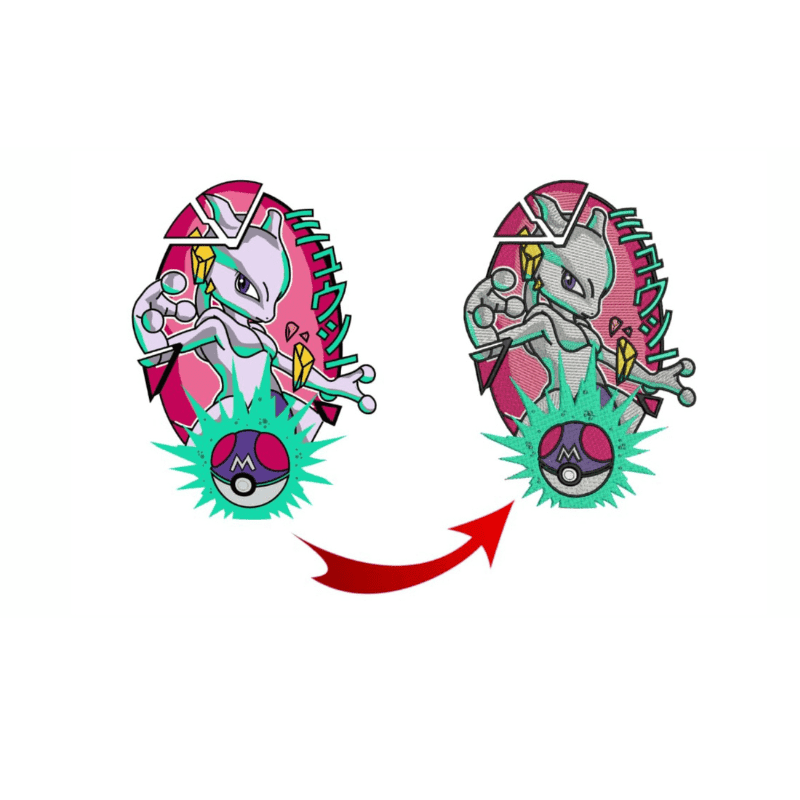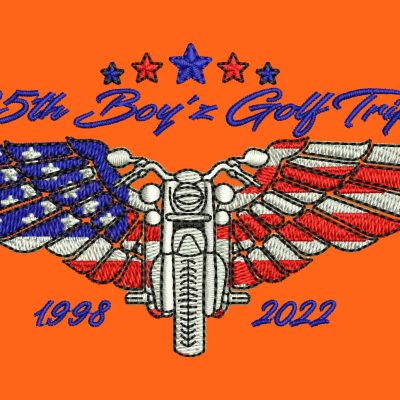Reliable Digitizing for Embroidery: Relied On by Specialists
Reliable Digitizing for Embroidery: Relied On by Specialists
Blog Article
Check Out Various Kinds of Embroidery Digitizing Strategies
Embroidery digitizing has advanced substantially over the years, supplying a myriad of strategies to bring styles to life in the digital world. The world expands to much more advanced techniques like photorealistic needlework digitizing and the remarkable realm of 3D needlework digitizing.
Traditional Hand Needlework Digitizing
Traditional hand needlework digitizing entails the procedure of converting elaborate hand-stitched styles into electronic styles for maker embroidery. This method needs proficient craftsmens to thoroughly evaluate the handcrafted design and afterwards use specialized software to recreate it in a digital format. Each stitch, color, and information needs to be thoroughly converted to make certain that the essence of the original hand needlework is maintained in the digital version.
Among the essential difficulties of traditional hand embroidery digitizing is catching the details and nuances of the handmade style. Digitizing for Embroidery. Craftsmens should have a deep understanding of various needlework methods, such as satin stitch, chain stitch, and French knots, to accurately replicate these strategies in the digital world. Additionally, they require to have a keen eye for detail to ensure that the digital layout preserves the exact same level of creativity and workmanship as the initial hand-stitched item
Punching Strategy
To flawlessly shift from conventional hand needlework digitizing to the boxing strategy, craftsmens should now concentrate on transforming the elaborate electronic layouts right into instructions that embroidery equipments can analyze. The boxing method involves utilizing specialized software application to develop digital documents which contain commands for the embroidery equipment to adhere to. This process needs a deep understanding of not just the style itself however additionally the capacities and constraints of the embroidery device.

Auto-Digitizing Software Program Programs
Embroidery digitizing has been reinvented by the development of auto-digitizing software application, supplying artisans with sophisticated devices to convert electronic layouts into embroidery machine directions effectively. Auto-digitizing software program programs use algorithms to analyze electronic images or vector files and generate embroidery designs automatically. These programs permit fast and exact conversion of detailed designs right into stitch patterns, conserving effort and time for embroiderers.
One of the vital advantages of auto-digitizing software is its easy to use user interface, making it accessible to both beginners and knowledgeable digitizers. These programs commonly consist of features such as stitch editing tools, thread color matching, and the ability to sneak peek the last stitched style. Additionally, auto-digitizing software program can handle complicated styles with numerous colors and elaborate details, generating high-quality embroidery files suitable for numerous clothing and fabric tasks.
While auto-digitizing software supplies convenience and performance, it is vital for individuals to understand the restrictions of automated digitizing. Fine-tuning and hand-operated changes may still be called for to achieve the wanted needlework high quality, my blog particularly when handling elaborate or unique layouts. By leveraging the capabilities of auto-digitizing software application alongside hands-on digitizing methods, craftsmens can improve their needlework digitizing procedure and develop spectacular stitched pieces.
Photorealistic Needlework Digitizing
Utilizing advanced electronic imaging strategies, accomplishing photorealistic outcomes in embroidery digitizing has actually ended up being a sought-after skill amongst modern-day artisans. This method entails transforming high-resolution images into intricate stitch patterns that very closely mimic the original style, causing needlework pieces that exhibit realistic information and deepness.
To achieve photorealistic embroidery digitizing, artisans need to have an eager eye for detail and a complete understanding of how different stitch types and densities can impact the last end result. By carefully mapping out each color and shade in the picture, embroiderers can develop a digital file that guides the needlework equipment to replicate the nuances of the initial image properly.
Photorealistic needlework digitizing is especially prominent in developing customized layouts for clothing, home decoration, and art items where catching the significance of a photograph or artwork is vital. This technique enables artisans to change memories, landscapes, pictures, and complex artwork right into magnificent embroidered work of arts that showcase a mix of traditional craftsmanship and advanced innovation.
3D Needlework Digitizing
With the development of electronic imaging methods in attaining photorealistic lead to embroidery digitizing, the exploration of 'D Embroidery Digitizing' supplies a brand-new dimension to the ins and outs of style replication. 'D Embroidery Digitizing' refers to the three-dimensional digitizing method that adds deepness and texture to embroidery designs, producing a much more practical and aesthetically enticing last item. This method makes use of software program that mimics the effect of light and darkness on the visit here embroidery layout, improving its overall visual impact.
One of the essential advantages of 'D Needlework Digitizing' is its capacity to make designs look even more natural and vibrant. By including depth to the needlework design, the end product shows up extra sensible and fascinating (Digitizing for Embroidery). Additionally, this method enables more creative liberty in design execution, making it possible for embroiderers to experiment with various structures and impacts that were formerly challenging to achieve
Final Thought

Report this page